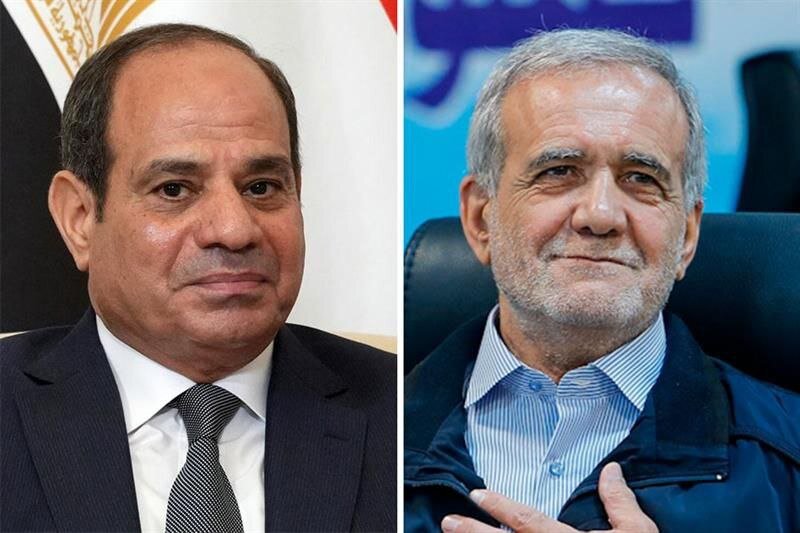Egypt and Iran: A Step forward in strengthening relations

CAIRO - The phone call between President Abdel Fattah el-Sisi and his Iranian counterpart Masoud Pezhakian reflects an important development in the trajectory of Egyptian-Iranian relations. It comes at a highly sensitive time amidst escalating regional tensions, particularly in the Gaza Strip.
This communication signifies the potential to enhance dialogue channels between Cairo and Tehran, which could contribute to easing regional tensions, especially if both sides align their views on the necessity of containing crises rather than inflaming them. The Egyptian-Iranian relationship has long been a complex equation influenced by geopolitical and ideological considerations. Since the Iranian Revolution in 1979, relations have experienced phases of tension and cautious rapprochement due to differing stances on regional issues such as the Arab-Israeli conflict, Persian Gulf security, and the role of major regional powers. Nevertheless, shared interests, particularly in securing shipping routes and containing conflicts, may drive both countries to reassess their relationship priorities in a way that serves regional stability.
Egypt maintains its position as an active player in managing regional balances, especially concerning the Palestinian crisis, where it is viewed as a reliable mediator in efforts to de-escalate tensions between Palestinian factions and Israel. Egypt also has direct influence over factions in Gaza. From this perspective, communication channels with Tehran could represent an opportunity to enhance joint pressure for a ceasefire, particularly given Iran's support for Palestinian Resistance, making understanding between Cairo and Tehran a significant factor in shaping the future of the crisis. Conversely, Egypt and Iran possess leverage that can be utilized to strengthen mutual cooperation, especially on regionally significant issues such as Red Sea security, and the stability of Iraq, Syria, and Lebanon. However, there remain key challenges, such as Iranian influence in the region and its relationship with Egypt's traditional allies in the Persian Gulf. Any Egyptian-Iranian rapprochement must take these sensitive balances into account, building gradual understandings without harming Cairo's relations with its regional partners.
Recent developments indicate rising concerns about the potential for the conflict in Gaza to extend into a broader scope involving Lebanon, Iraq, and possibly Yemen. In this context, Egypt could play a pivotal role in calming the situation through diplomatic dialogues with Iran that contribute to regulating the movements of Iran-backed factions and preventing the region from slipping into unpredictable confrontations. The success of this path depends on both parties' ability to adopt a rational approach that balances regional interests with each side's security commitments. This potential rapprochement between Cairo and Tehran occurs against a complex international backdrop, where Western pressures on Iran are increasing due to its nuclear program, while Egypt faces economic and security challenges that necessitate enhancing its regional role. Thus, Egyptian-Iranian dialogue could serve as an entry point to explore cooperation opportunities in areas such as economy, trade, and energy, especially under the sanctions imposed on Iran, which may push it to seek new partners to bolster its economic presence.
In light of these factors, it appears that the relationship between Egypt and Iran may enter a new phase of cautious interaction, where Cairo will seek to achieve strategic gains without compromising its regional principles. Conversely, Tehran may find this rapprochement an opportunity to improve its diplomatic standing and expand its policy towards its neighbors. The success of this path relies on both parties' ability to manage disagreements and reach understandings that promote stability and prevent the escalation of conflict in the region.
Leave a Comment